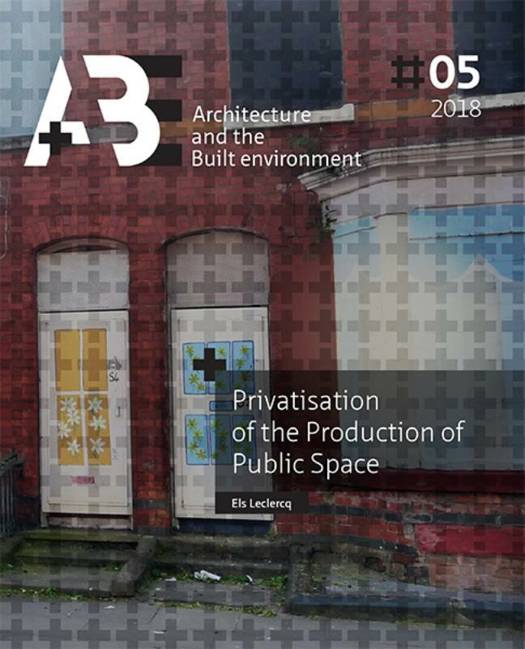
Bedankt voor het vertrouwen het afgelopen jaar! Om jou te bedanken bieden we GRATIS verzending (in België) aan op alles gedurende de hele maand januari.
- Afhalen na 1 uur in een winkel met voorraad
- In januari gratis thuislevering in België
- Ruim aanbod met 7 miljoen producten
Bedankt voor het vertrouwen het afgelopen jaar! Om jou te bedanken bieden we GRATIS verzending (in België) aan op alles gedurende de hele maand januari.
- Afhalen na 1 uur in een winkel met voorraad
- In januari gratis thuislevering in België
- Ruim aanbod met 7 miljoen producten
Zoeken
Omschrijving
Can the organisation of public space be handed over to private parties? Yes, according to Els Leclercq's conclusion in her doctoral research, but it has serious consequences in terms of what is and is not permitted in streets, squares, and parks. She calls for clear government regulation.
In the United States, it is commonplace for commercial parties to take over public space, but, in Europe, the idea is met with a feeling of distrust. Great Britain is somewhere in between. "Private parties help ensure that there are pleasant and clean areas where it's good for people to shop and live," says Leclercq. "But they also want an environment that's completely free of risk. This is at odds with our conventional ideas about public life."
Leclercq concludes that the privatisation of public space can work, but it also has its dangers. Dividing up public space into private 'islands' can threaten public life and citizens' rights. Leclercq: "The government needs to set boundaries in which private, public and community parties are permitted to operate and enforce any infringement of the rules. This is the only way of guaranteeing the rights of all citizens."
In the United States, it is commonplace for commercial parties to take over public space, but, in Europe, the idea is met with a feeling of distrust. Great Britain is somewhere in between. "Private parties help ensure that there are pleasant and clean areas where it's good for people to shop and live," says Leclercq. "But they also want an environment that's completely free of risk. This is at odds with our conventional ideas about public life."
Leclercq concludes that the privatisation of public space can work, but it also has its dangers. Dividing up public space into private 'islands' can threaten public life and citizens' rights. Leclercq: "The government needs to set boundaries in which private, public and community parties are permitted to operate and enforce any infringement of the rules. This is the only way of guaranteeing the rights of all citizens."
Specificaties
Betrokkenen
- Auteur(s):
- Uitgeverij:
Inhoud
- Aantal bladzijden:
- 380
- Taal:
- Engels
- Reeks:
Eigenschappen
- Productcode (EAN):
- 9789463660600
- Verschijningsdatum:
- 5/04/2018
- Uitvoering:
- Paperback
- Afmetingen:
- 190 mm x 235 mm
- Gewicht:
- 882 g

Alleen bij Standaard Boekhandel
+ 59 punten op je klantenkaart van Standaard Boekhandel
Beoordelingen
We publiceren alleen reviews die voldoen aan de voorwaarden voor reviews. Bekijk onze voorwaarden voor reviews.









